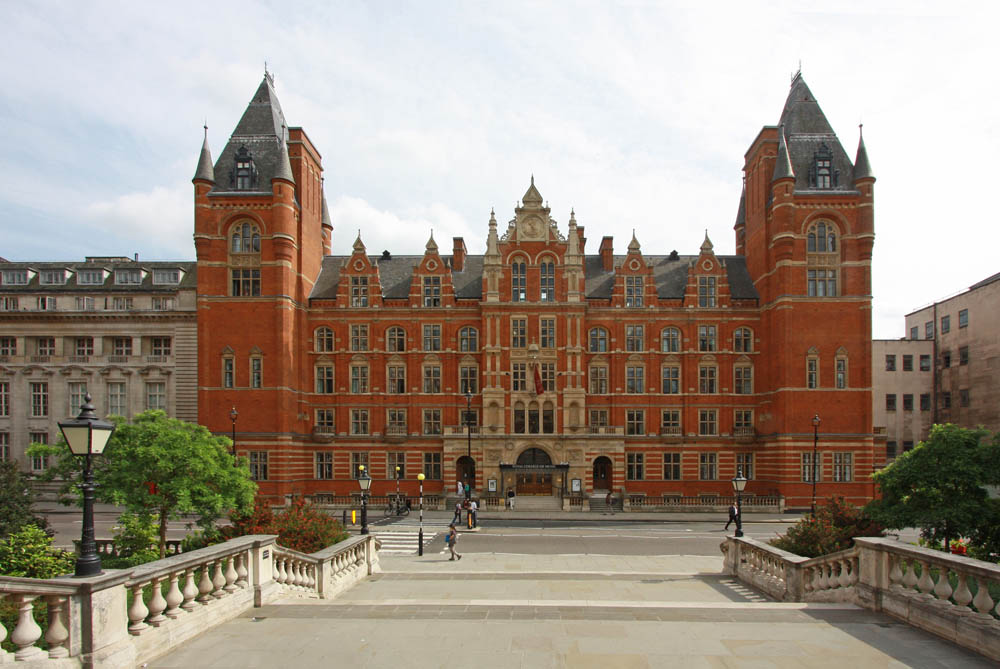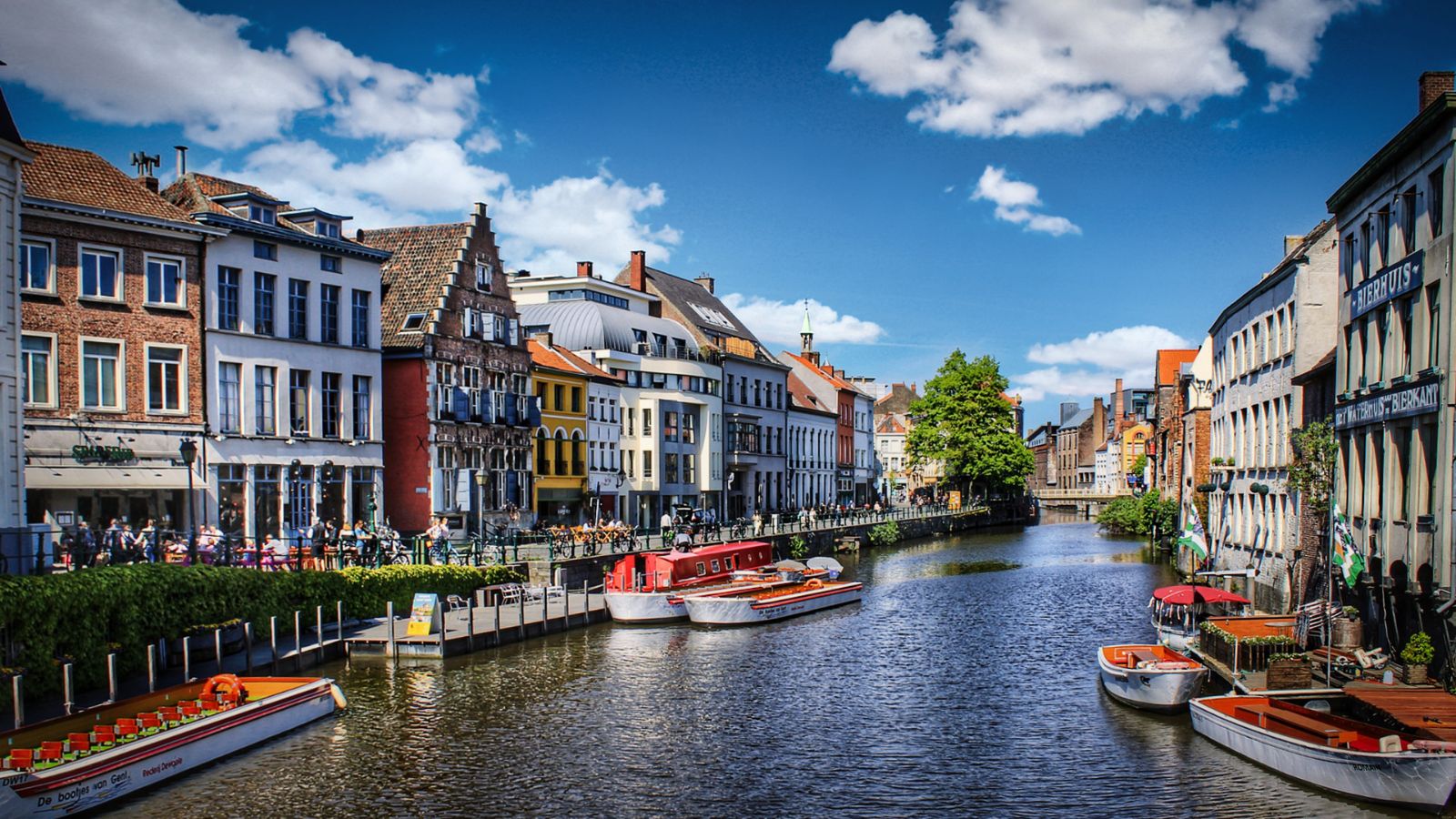What a privilege to be able to choose how and where to live. Not many have this, so when you do, try and make the most of it. If you’re considering Europe for a fresh start, that’s a bold move because the continent is abundant with opportunities. But with 44 sovereign nations, one begins to wonder, what is the best country to live in Europe? Germany, Denmark, and the Netherlands are great options. We explored more in this article, exploring each country’s quality of life, job opportunities, and expat-friendly environments. Let’s get started!
Top 10 best countries to live in Europe
The best countries in Europe to live are Greece, Portugal, Finland, Switzerland, Sweden, the Netherlands, Denmark, Germany, Ireland, and the UK. Find out more about what makes them stand out:
Germany
Global Peace Index Score: 15th
Germany stands as the best country in Europe to live and work because of its security and strong economy. Yes, life there is busy, but there’s also plenty of peace of quiet, as Germans naturally value order and calm. Some nights, though, you’ll find clubs buzzing with techno music.
Business-wise, Germany is solid for entrepreneurs and investors. The workforce is known for professionalism and precision. Taxes are even lower than the EU average.
Citizenship by naturalisation is possible for those without family ties once they meet the residency requirements. Another option is the freelance visa, which allows you the flexibility to live and work there while also enjoying free movement across the Schengen Area.
The public healthcare system is free in Germany, education is widely accessible, and cultural treasures abound, from forests and castles to UNESCO World Heritage Sites.
Add to the low corruption, safety, and high standard of living, and it’s easy to see why Germany is the best place to live in Europe.
Denmark
Global Peace Index Score: 8th
One prominent feature of Denmark is the excellent healthcare, high-quality education, and efficient public services. Healthcare and education are even free. Thanks to their solid tax system.
You’ll enjoy the clean and safe life in the country. There’s a strong emphasis on work-life balance. In fact, at the heart of Danish life is the concept of “hygge”, which means cosiness – a way of enjoying the little things in life, often with friends, family, or a warm atmosphere. There’s a spirit of comfort and community in the country. No wonder Danes are often ranked among the happiest people on earth.
Denmark’s economic system is solid with access to EU markets. Corruption is low, the system is transparent, and the workforce is highly skilled.
Another big advantage is language. Although Danish is the official language, most Danes speak excellent English. So, it’s easier for foreigners to live and work here.
Netherlands
Global Peace Index Score: 18th
Another best country in the EU to live in is the Netherlands. The country is well known for its active role in promoting peace and justice around the world. So, it’s no wonder that back home, residents enjoy a high quality of life, excellent public services, and a strong sense of work-life balance.
Don’t worry about the possibility of blending in. The international community is large, and thus makes it very welcoming to foreigners.
Although at first, you might startle at their direct communication and consider it blunt. It’s actually a sign of honesty and openness, and most Dutch people are friendly, humble, and welcoming.
The Netherlands also has a deep cultural identity. There are many iconic images like windmills, canals, tulips, cheese, and the works of the Dutch Masters.
Finally, to get a residency permit in the country, you must have lived there for 5 years, registered in the Personal Records Database (BRP) of your municipality, and have an independent, sufficient, and sustainable income.
Sweden
Global Peace Index Score: 35th
You wonder why Sweden is the best Europe country to live in? Well, for starters, the economy is stable, social services are strong, and there’s a deep focus on equality and well-being. In fact, since the 1970s, the country’s economy has grown steadily, and today it stands as one of Europe’s most competitive and high-performing nations.
Citizens are entitled to universal healthcare, affordable or even free education, generous childcare support, and a clean, sustainable environment.
The country is also known for its worldwide contributions to culture and innovation. Think ABBA’s Europop, Viking history, and IKEA’s flat-pack furniture. You’ll do well if you’re in the manufacturing and industrial engineering sector, as it makes up around 20% of GDP, which is about USD 117 billion.
Although the winters can be very long, cold, and dark, with time, you’ll eventually ease into the weather conditions with time.

UK
Global Peace Index Score: 34th
The United Kingdom is made up of England, Scotland, Wales, and Northern Ireland. This explains why the country is a unique blend of tradition and modernity. There’s always something to explore – like the ancient castles and historic cities, to multicultural communities.
Economically, the UK ranks 6th globally and the 2nd largest in Europe. This comes with a strong job market and a high standard of living. The economy is also service-based. So, the service sector contributes around 80% of the GDP.
Some of the key industries include finance, healthcare and social work, retail and entertainment, education, and creative services.
The public transport system is reliable and provides excellent travel links across Europe and beyond. Finally, the National Health Service (NHS) provides free public healthcare
Switzerland
Global Peace Index Score: 6th
If career growth opportunities are the primary reason for moving to Europe, consider settling in Switzerland. The country has one of the strongest and most stable economies in the world, with the pharmaceutical sector taking the lead. This is followed by other industries like finance and banking, export, tourism, and hospitality.
Life in Switzerland is quite refreshing. The country is famous for being clean, safe, and efficient, with one of the best transport systems in Europe. Facilities there are modern, waiting times are short, and most doctors speak English.
Interestingly, Switzerland has four official languages – German, French, Italian, and Romansh. This diversity adds to the country’s richness, and as a newcomer who’s only fluent in English, you can still get by. Most residents speak English as well. Best of all, foreigners are usually welcomed warmly, especially in the urban areas.
Ireland
Global Peace Index Score: 2nd
Ireland stands out as the best European country with the highest standard of living, especially if you’re in Dublin. Although the city, divided by the River Liffey, it has two sides – north and south. Originally, the north side was home to the city’s working-class communities, while the south side had more of the middle and upper classes. Today, both sides are popular depending on budget, lifestyle, and work location.
Dublin is full of history, culture, and charm. The high standard of living comes with great benefits like excellent public transport, easy access to shops, plenty of family-friendly activities during the day, and lively nightlife after dark.
Moreover, the expert community there is strong and large. So, as a newcomer, you’ll find it easy to meet both locals and fellow internationals.
The job market in Dublin is diverse, but there are more opportunities in fintech, digital marketing, and e-commerce. That’s no surprise because the city is a major European tech hub and home to the headquarters of big tech brands like Google, Meta, and Microsoft.
Finland
Global Peace Index Score: 13th
Do you know that Finland is one of the most stable and prosperous countries in the world? The largest share of the economy comes from the service sector. But you can also find your way if you’re in industries like technology, engineering, healthcare, and education.
Work aside, the lifestyle there is quite magical. The lively streets of Helsinki and the stunning landscapes of Lapland will fill you with much aliveness. Add this to the high standard of living, strong sense of community, low crime rate, and excellent work-life balance, and you’ll see why Finland is one of the best places to live in Europe.
Also, don’t worry if you don’t speak Finnish right away. Most people, especially in the cities, speak English fluently, so you’ll find it easy to get around and settle in.
All round all, Finland also offers clear pathways for foreigners, whether you’re looking for work opportunities, a startup permit, or even a route to permanent residency and citizenship.
Portugal
Global Peace Index Score: 7th
Portugal has an excellent mix of affordability, safety, and lifestyle perks for you. The country’s cost of living is relatively low compared to other Western European countries. Even at that, healthcare and education are easily accessible and standard.
The climate is warm there, the crime rate is low, and the culture is welcoming. In cities like Lisbon and Porto, you’ll find a growing international community, so there are plenty of opportunities to connect with locals.
English is widely spoken in the cities and tourist areas, though learning some Portuguese will definitely help if you want to fully integrate, especially in rural areas.
Portugal is majorly good for retirees thanks to its relaxed pace of life, great healthcare system, and attractive pathways to residency and citizenship.
Greece
Global Peace Index Score: 40th
Life in Greece blends a relaxed Mediterranean vibe, affordable living costs with abundant sunshine. Locals are generally warm and welcoming. On the islands, you’ll need to adjust to seasonal business closures and heavy tourist traffic in summer.
Moreso, healthcare is heavily accessible. The public ones are either free or heavily subsidized. For residency, programs like the Golden Visa make it possible to gain a permit through property investment.
Another reason why Greece is the best country in the EU to live in is that it has low housing, grocery, and transport costs compared to other EU countries. It’s also considered safe, rich in history and culture, and increasingly promising in real estate.
On the work front, opportunities are strongest in tourism, tech, and shipping, with a relaxed work culture to match.
There you have it! The best countries to live in Europe. Each has its unique attribute, but here’s a summary:
| Country | Global Peace Index Rank | Cost of Living | Lifestyle & Perks |
|---|---|---|---|
| Germany | 15th | Moderate (higher in big cities) | Free healthcare, strong education, and cultural heritage. |
| Denmark | 8th | High | Free healthcare & education, “hygge” culture, very English-friendly |
| Netherlands | 18th | High (housing especially) | Cycling culture, inclusive expat community, direct but friendly locals |
| Sweden | 35th | High | Universal healthcare & education, equality-focused, long dark winters |
| UK | 34th | High (esp. London) | Free NHS healthcare, cultural diversity, history + modernity |
| Switzerland | 6th | Very high | 4 languages, clean, efficient, excellent healthcare, safe, stunning nature |
| Ireland | 2nd | High (esp. Dublin) | Friendly locals, vibrant expat scene, family-friendly, rich culture |
| Finland | 13th | Moderate | High standard of living, community-driven, magical Lapland, English widely spoken |
| Portugal | 7th | Low–Moderate | Affordable, safe, warm climate, great for retirees, welcoming culture |
| Greece | 40th | Low | Mediterranean lifestyle, affordable, sunny, history & culture-rich |

What to Consider When Choosing the Best Country in EU to Live?
The idea of starting life in a different country and continent is exciting yet terrifying at the same time. You surely have your reasons for considering this move, but to make the right choice, ask these questions:
- What’s the weather like? Mind you, the weather affects your mood more than you may realize. If you love sunshine, consider Portugal. Sweden and Finland have long winters and limited daylight.
- Can you speak the local language, or at least get by in English? Not knowing the language can make it harder to work, make friends, or even handle paperwork.
- Can you blend with the traditions, food, and lifestyle? Research how locals in the country of your choice live and see if it fits your goals. If you prefer a multicultural vibe, cities like London (UK) or Berlin (Germany) are more diverse.
- How strong and stable is the country’s economy? Are there good opportunities for expats? Germany has the strongest economy in Europe, with plenty of opportunities, while countries like Greece may offer lower costs but fewer high-paying jobs.
- Are healthcare and education accessible? If you’re moving with your family, who probably have kids, ensure schools and hospitals offer high-quality care.
- What’s the tax system like? Tax rules differ everywhere. Some countries tax only local income, others tax global income. For example, in Portugal, the Non-Habitual Resident (NHR) scheme gives tax breaks to expats. Ireland and the UK have higher tax rates but also strong social benefits.
- What are their visa and residency rules? EU citizens can move freely within the EU. For non-EU citizens, countries like Portugal and Spain offer “Golden Visas” if you invest, while Germany has a work visa route for skilled professionals. Always check the paperwork needed before moving.
- What’s the housing like? It’s not easy to find a home in a new country, especially if it’s your first time. You’ll struggle with knowing the local rent rules or price ranges. Thankfully, uhomes.com steps in to help. No need to worry about scams or unreliable landlords; all properties are verified, ensuring safety and legitimacy. There’s also a wide coverage across Europe, including countries like Portugal, the Netherlands, Finland, Sweden, and Switzerland.
Conclusion
At the end of the day, choosing the best country to live in Europe is less about rankings or checklists and more about where your life feels most aligned. For some, that might be Germany’s economic strength, Denmark’s work-life balance, or Portugal’s sunshine and affordability. For others, it could be the multicultural energy of the UK, the calm order of Finland, or even the easy-going lifestyle in Greece.
Just ensure to ask the right questions and look for the country that gives you the right mix of safety, opportunity, and happiness.
FAQs On The Best European Countries To Live In
Greece. Thanks to its mild Mediterranean climate, affordable cost of living, and strong sense of community. Families also benefit from good healthcare, quality education, and a safe environment. Plus, the relaxed lifestyle and rich culture make it a warm and welcoming place to call home.
In the UK and Ireland, English is the native language. Also, in the Netherlands, Denmark, Sweden, Norway, and Finland, most people speak English fluently. Countries such as Germany, Austria, Belgium, Malta, Portugal, and Switzerland are also great options.
Switzerland is the most expensive country to live in Europe, with prices around 184% of the EU average in 2024. Other costly countries include Iceland, Norway, Luxembourg, Denmark, and Ireland, especially for housing and food.
The Netherlands, Denmark, and Germany. They offer high living standards, competitive salaries, and strong work-life balance. Germany is ideal for IT, engineering, and healthcare, while the Netherlands attracts tech and finance professionals. Denmark stands out for research, pharma, and its flexible work culture, making all three excellent choices for Indian workers.
Portugal is one of the best European countries for Indians, especially for those seeking long-term residency. It offers the Golden Visa Programme, allowing Indians to gain residency through real estate or business investment. Portugal also boasts stunning landscapes, affordable living, and a high quality of life.
Montenegro. It is located in Southeast Europe and known for stunning spots like Durmitor National Park, Kotor’s old town, and Budva’s coastal beaches along the Adriatic Sea. For budget-friendly travel, Hungary is another great option. It offers affordability and rich cultural experiences.








